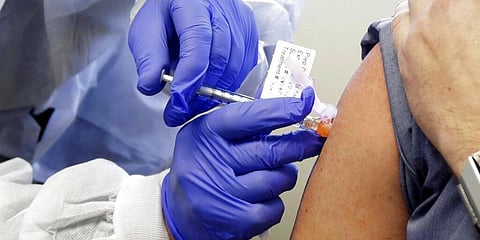

NEW DELHI: UK has become the first country in the world to announce that it will host human challenge studies, in which participants are deliberately injected with a pathogen to assess if a certain vaccine works, for Covid-19 vaccines. This is a proposition that India has considered but chosen not to follow, said senior officials in Union Health Ministry and the ICMR.
Under the project led by Imperial College, London, researchers are planning to conduct trials beginning January 2021. So far, about 2,000 potential volunteers have signed up. Back home, authorities said there are ethical issues involved and such scientific exercises are far trickier than the routine human testings. “So far, there is no definitive curative therapy for severe Covid-19.
What happens if somebody deliberately injected with the virus goes on to have severe form of the disease?” questioned Dr Samiran Panda, chief scientist with the ICMR. “That’s why we are not considering such a testing in Indian context.” Experts pointed out that human challenge trials have been done in the past, but not lately due to ethical issues.
“There were also instances of misuse on vulnerable populations such as people in mental asylums, orphanages and prisons in the mid-20th century,” pointed out virologist Dr Shahid Jameel. Guidelines for informed consent were later framed.
Though only a small group of people are needed to prove efficacy, “usually human challenge is done for infections that have an existing treatment”, Jameel said. For Covid-19, he said “we don’t understand the long-term effects of infection; so such testing may be very challenging to carry out”. Another virologist Dr Gagandeep Kang reckoned, “For SARS-CoV2, Oxford University may be the best place to consider studies given their decades of experience of conducting scientifically valuable human infection studies safely.”
Vaccine to be experimented on two sets of people
Under the study, one group of people will be given the experimental vaccine while the other will not receive it. Both the groups will then be injected with SARS-CoV-2 and will be compared to see progression and effect of the pathogen in the vaccinated group.